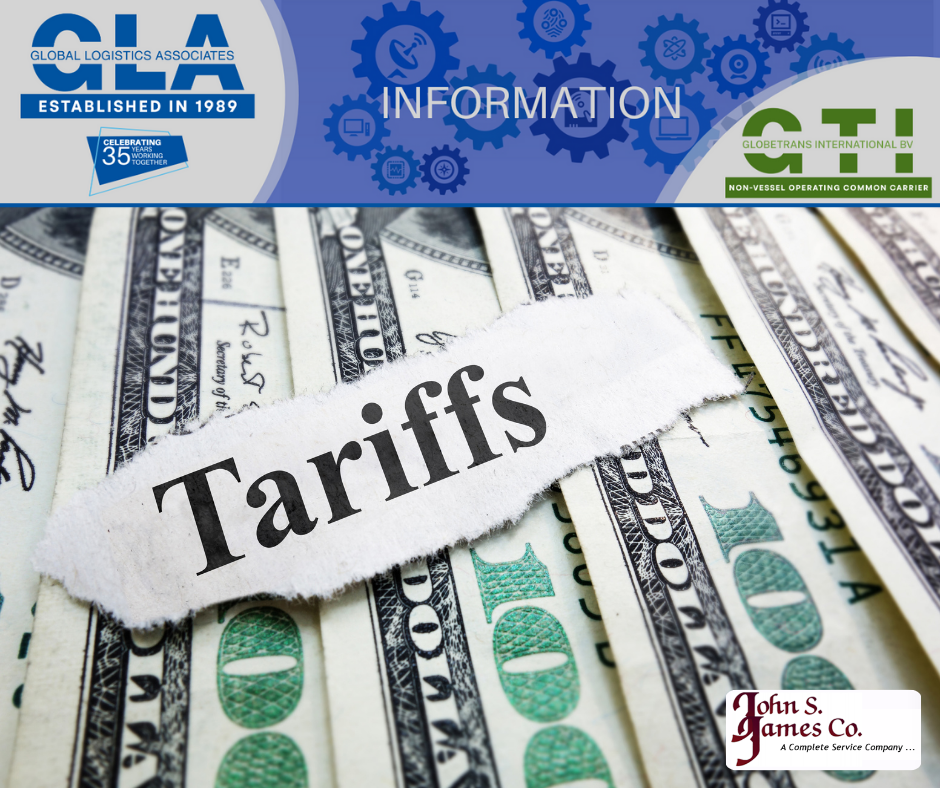
03 Jun The Impact of New 301 Tariffs on Imported Goods from China
We would like to thank our member John S. James Co. from the USA for putting this report together.
By continuing to use the site, you agree to the use of cookies. more information
The cookie settings on this website are set to "allow cookies" to give you the best browsing experience possible. If you continue to use this website without changing your cookie settings or you click "Accept" below then you are consenting to this.
Gary Sanderson
Posted at 13:55h, 03 JuneGreat post. Thank you to all at the GLA for sharing. It will be interesting to see the impact this makes on our global network.